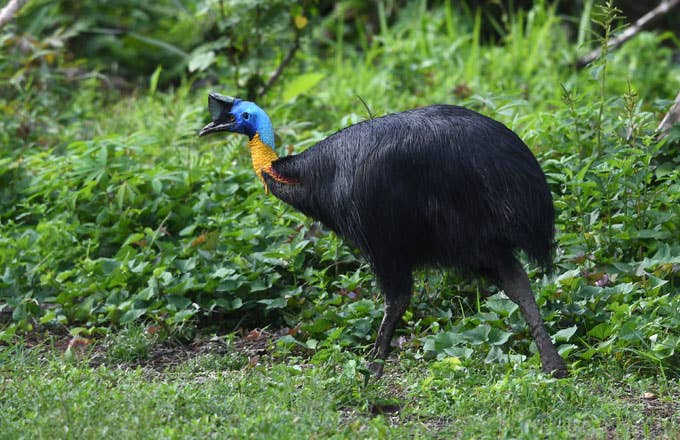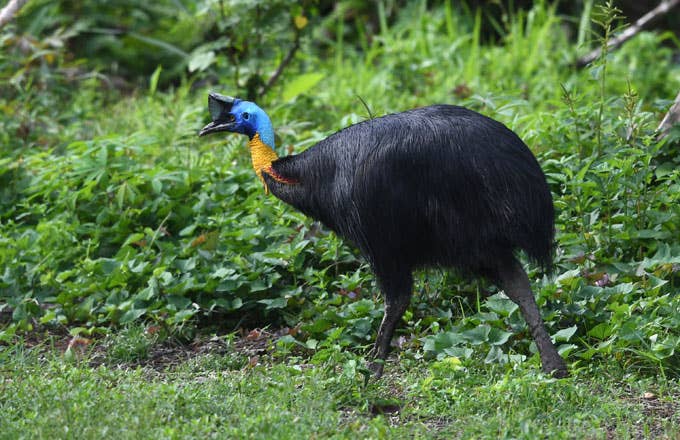
If you currently find yourself on the fence about whether or not you want to adopt a cassowary (uh, a big bird with enormous claws, pictured above) here's an event that could change your mind.
A Gainesville, Florida man who owned one of the rare birds died after he fell in his backyard this past Friday, according to CNN. That man, Marvin Hajos, had made a call to 911 at roughly 10 a.m. Shortly afterward, a second call was made to the emergency hotline stating that there was a situation involving a large bird. Hajos was taken to a nearby hospital, but was later pronounced dead. As for the cassowary, that's still on his property as police look into the attack. The cassowary is native to Australia and New Guinea, and Hajos had operated as a breeder prior to the accident.
Thus far it appears that the bird had attacked Hajos after he fell. Cassowaries are considered "Class II wildlife" by the Florida Fish and Wildlife Conservation Commission, which means they are dangerous to humans and, thus, must be subjected to specific caging requirements. The commission added that owners need to have "substantial experience" with said animals.
CNN adds that a Class II designation puts them in the same class as alligators, clouded leopards, and honey badgers, while a Class I label would put them in line with traditional big-time predators like bears, lions, tigers, etc.
Cassowaries are large, flightless, and are similar to emus. They're also rather formidable as they are skilled swimmers, can jump almost seven feet in the air, and hit speeds of 31 MPH. They can grow up to five feet tall, with females weighing up to 160 lbs., according to the San Diego Zoo. The zoo adds that the species has a three-toed foot with a dagger-like claw that can get up to four inches long. This claw can cut open predators with a single kick, and therefore they state that it is the "most dangerous bird in the world." So yeah, avoid them at all costs.

